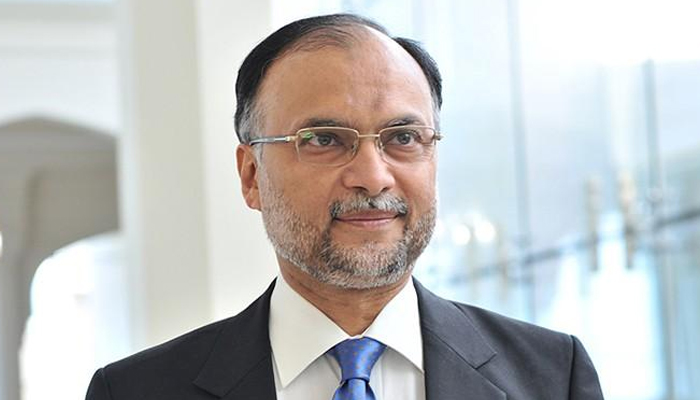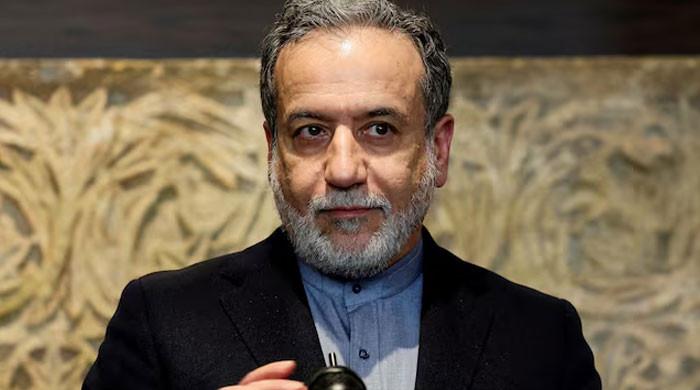Adding Pakistan's name to FATF watchlist will impact war against terrorism: Ahsan Iqbal
Iqbal is in Paris to attend the FATF meeting
February 21, 2018

PARIS: Pakistan's Interior Minister warned Tuesday night against adding the nation's name to a watchlist of countries that financially aid terrorism.
Ahsan Iqbal, while speaking ahead of a meeting of the Financial Action Task Force (FATF), stressed that if Pakistan's name is added to the "watchlist", it will negatively impact the war against terrorism.
FATF is a global body that combats terrorist financing and money laundering.
Earlier, a delegation — led by Syed Mansoor Shah, the Director-General of the Financial Monitoring Unit and comprising other members of the Foreign and Interior ministries — reached Paris to defend the country's position at the FATF meeting.
The delegation came into motion after a resolution — sponsored by the United States and supported by its allies — was put forward to consider placing Pakistan on a watchlist of countries that financially aid terrorism.
Dr Miftah Ismail in Paris
Adviser to the prime minister on financial affairs Dr Miftah Ismail also reached Paris to attend the same meeting.
According to official sources, Ismail visited Germany, Belgium, and the Netherlands last week in an attempt to garner support against the US move.
Of the FATF's 35 permanent members, only China supported Pakistan, while the rest were likely to fall behind the US resolution, the sources said.
On February 16, Heather Nauert — the spokesperson for the US Department of State — said a resolution to place Pakistan on the global terror-financing watchlist had been submitted to the FATF.
She elaborated that the US had been concerned about Pakistan's actions for a long time.
Impact of FATF placing Pak on watchlist
Reacting to the US move, the Foreign Office said Pakistan has serious concerns regarding the American resolution.
Pakistan's international credit rating could suffer a setback as a result of being placed on the list, as several global financial institutions are influenced by the FATF, which includes around 700 members in total, including the United Nations, European Commission, International Monetary Fund and World Bank.











